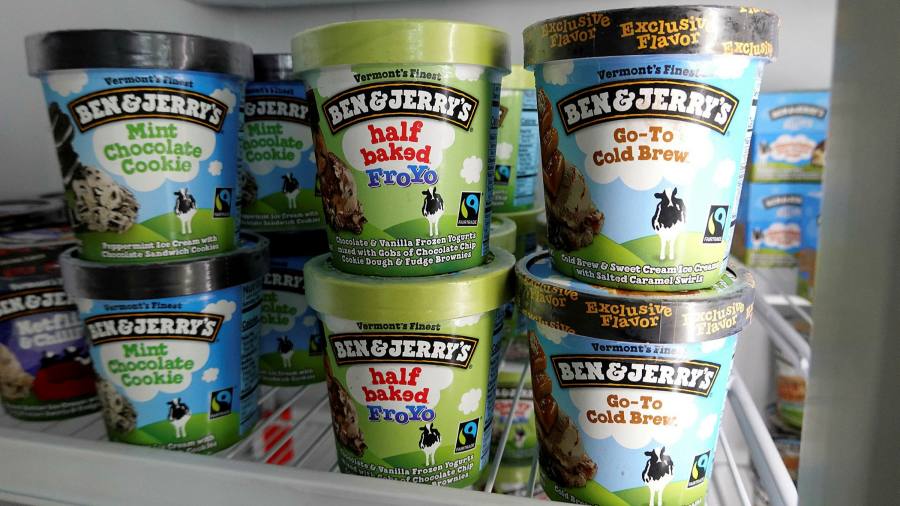
Unilever to set new healthy food targets after investor pressure
Unilever is to publish nutrition scores for its food portfolio, which incorporates Ben & Jerry’s and Magnum ice-product, Hellmann’s mayonnaise and Knorr stock cubes, towards external overall health metrics and established new targets subsequent strain from traders about obesity.
The pledge to assess general performance from 6 steps, including the UK’s “high in fat, sugar and salt” definition and Europe’s Nutri-Score, will come following institutional investors which includes €150bn asset supervisor Candriam tabled a shareholder resolution on the situation.
Unilever, which is the world’s greatest ice-product maker, will set out refreshing targets by October, and stated it would be the to start with world-wide food stuff group to publish nutritional efficiency in this way. It will assess general performance globally and for 16 essential markets by product or service quantity and revenues.
Larger rival Nestlé has been doing work on new nutrition criteria. An inside report noticed by the Economical Periods very last 12 months explained a lot more than 60 for each cent of the Swiss group’s mainstream foods and drink solutions do not satisfy a “recognised definition of health”.
Catherine Howarth, chief government of ShareAction, a shareholder team that pushed Unilever to make the adjustments, mentioned: “The transparency promised sets a new normal for the market. We hope and anticipate that others will stick to.”
Investors with $215bn in assets like Candriam, US health care provider Trinity Well being and the Better Manchester Pension Fund tabled a resolution in January forward of Unilever’s yearly basic meeting owing in May possibly, urging the FTSE 100 consumer items group to set formidable targets for offering additional nutritious meals.
Ignacio Vazquez, senior supervisor of healthier marketplaces at ShareAction, stated at the time that, even with Unilever’s solid sustainability document, “the wellness profile of the food stuff and consume items it sells continues to be a blind spot”.
“This is stunning, as the swift expansion of regulation signifies that wellbeing is a vital [environmental, social and governance] difficulty presenting a real economic danger to its organization.”
The resolution has now been withdrawn, and Unilever explained it would function carefully with ShareAction and its Balanced Marketplaces Initiative. Hanneke Faber, president of Unilever’s meals division, explained the adjustments would “set a new benchmark for nourishment transparency in our sector and speed up our favourable impact on community health”.
Unilever’s existing targets for its food stuff and refreshment arm, which has €20bn of yearly revenues, include things like doubling the variety of products furnishing “positive nutrition” by 2025.
The corporation experienced deemed providing its food and refreshment arm to help fund a failed £50bn bid for GlaxoSmithKline’s purchaser well being division late final calendar year. But right after a shareholder backlash, Unilever claimed it was no more time in search of big-scale mergers and acquisitions.
Governments globally are seeking to battle weight problems, which the Planet Overall health Corporation claims has practically tripled given that 1975, but some steps are contentious, particularly in relation to products found as “treats”.
At the time of the shareholder resolution in January, Mark Lynch, associate at corporate finance boutique Oghma Partners, reported: “Opponents will see the normal logic remaining that companies like Lindt prevent advertising chocolate or Diageo, alcoholic beverages — no shareholder is going to vote for that.”
